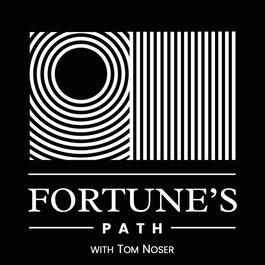
Sloane Scott on Healthcare Self-Pay, Creating Shareholder Value
2:12 - Why she became a self-pay patient after two medical bankruptcies. 9:22 - How to navigate self-pay by removing fear-based thinking (I must have health insurance) and negotiate with every single healthcare service you pay for. 11:02 - The freedom that comes with leaving health insurance behind and embracing self pay. 11:58 - How hospital foundations and patient pay advocates have emerged to embrace (somewhat) self-pay. 12:49 - As a high earner, she does not use these foundations, but negotiates to pay her bill. She's also a member of Christian Healthcare Ministries (CHM), a health cost sharing ministry. 13:20 - How CHM works - you become a member, pay a monthly fee. When a healthcare episode arises, you access CHM to get your healthcare bills paid, or shared. 15:14 - Sloane details the self-pay patient journey, how self-pay doesn't trickle through to all areas of the healthcare industry, and how to educate each sector about self-pay. 22:50 - How to ask for the self-pay rate as a patient. 25:00 - Where Sloane negotiated for care from one provider that was 75% less than what another provider quoted. 26:35 - How physicians are fairly knowledgeable about self pay, but those in their business offices are not. They are trained to work with insurance. She packs her "patience and grace" to ask them to do something that is unusual. 29:25 - Tom pivots the conversation to how Sloan copes with a diagnosis of a terminal illness (at age 23). She doesn't let it define her, and looks at her condition as a chronic illness. 30:23 - How Sloane and Tom agree that it is the dying person's responsibility to prepare the living for their own death. 34:14 - Why doctors ignore DNRs (hint: it has to do with litigation). 35:10 - Tom laments that modern Stoics don't talk suicide the way the original Stoics did - it is the last vestige of our wills. 37:50 - Sloane shares her grandmother's advice about friendship: you really only need 6 friends in life; 3 on one side of the casket, and 3 on the other. 38:10 - The extreme rarity of having one really close friend. 40:00 - Shifting to business, how she found herself in Nashville's health tech scene. Pre-pandemic, it was crowded, healthy and vibrant. Backed by Nashville and nationwide private equity and venture capital firms, and also supported by local institutions like the Nashville Entrepreneur Center, Nashville Healthcare Council, local family funds, and others, founders were getting a lot of support. 41:13 - When founder-led companies become responsible for creating shareholder value. The trajectory to create shareholder value is a big change, and she learned how sales and marketing played such a significant role in creating that value. 42:35 - Creation of her secret sauce: the strategy/methodology/execution of marketing to build to exit, and understanding how to make quick pivots as needed. 44:02 - What healthcare doesn't talk about post-pandemic: the rise in chronic disease, chronic care. Fortunately, many tech companies have come forward to begin to address this issue, but the exits are not as speedy as they once were. 45:29 - The role of a strategic story in an exit, and how your fly paper is still whether or not you created shareholder value. But healthcare needs to re-think intellectual property. 47:00 - The other way to re-frame and look at shareholder value: the customer relationships you create. If you can own a swim lane in the market, and really own it well, that has enormous value. 48:16 - How mergers often destroy value by devaluing the brand and the culture. 51:24 - Who shaped her marketing philosophy, Marty Neumeier, who was Steve Jobs' brand mentor. She believes, as Marty maintains, that a brand isn't what you say it is, it's what your customer says it is. 54:17 - How she loves founder-led companies, and how she gets so much more out of it than what she put into it. Her emotional paycheck gets cashed every time she sees someone get a check they never thought they would get.
From "Fortune's Path Podcast"


Comments
Add comment Feedback